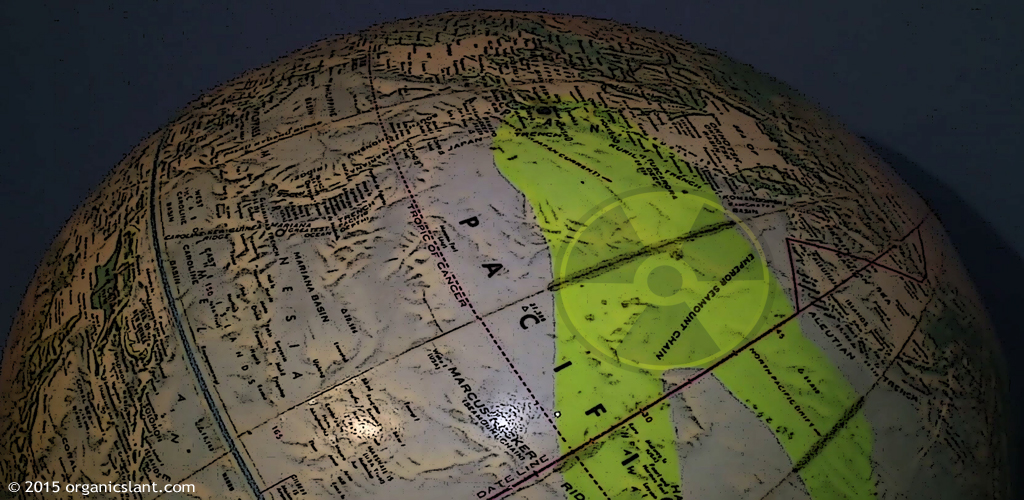Heavy rains from Typhoon Etau caused intermittent drainage overflows at Fukushima Daiichi on Sept. 9. The water involved appears to have been tainted.
The overflow was from channels that drain surface water from various parts the facility.
None of this surface water comes in contact with the more highly contaminated parts of the facility and, past monitoring has shown, is only slightly tainted. Some of the channels lead to the port area of the plant, which is protected from the open ocean. One channel, K Drainage, leads to the open ocean but pumps have been installed to divert water from K Drainage to C Drainage, thereby retaining the water within the port area.
It was known that during periods of exceptionally heavy rainfall, typically associated with typhoons, the flow of water could overwhelm the available pumping capacity, causing some rainwater to flow into the ocean at the mouth of K Drainage. But monitoring after such an event – such as one on July 16 of this year – showed only slight and temporary increases in radioactivity.
Typhoon Etau appears to have been such an event. In the early morning hours of Sept. 9, heavy rains caused K Drainage to exceed the pumping capacity for two periods, ending at 4:24 a.m. Japan Time. In addition, on Sept. 11 at 3:03 a.m., due to the same reason, heavy rains, rainwater overflowed from the same drainage for three periods, ending at 7:07 a.m.
While the total volume of water cannot be measured for both days, sampling data indicates the water is only slightly tainted and unlikely to have any environmental impact. The sampling data has been made public at Sept. 9th
http://www.tepco.co.jp/nu/fukushima-np/f1/smp/2015/images/k_drainage_15090901-j.pdf
Sept. 11th
http://www.tepco.co.jp/nu/fukushima-np/f1/smp/2015/images/k_drainage_15091101-j.pdf
Flooding swept away radiation cleanup bags in Fukushima
Environment ministry officials say they received a report on Friday morning that floods from heavy rain carried the plastic bags into the Niida River. They were being stored on farmland in Iitate village near the Crippled Fukushima Daiichi nuclear plant.
The bags contained grass and other materials tainted with radioactive substances from the 2011 nuclear accident. They were being kept outdoors near the river before being transferred to storage sites.
The officials say 82 bags have been washed into the Niida and nearby Hiso rivers. Workers involved in decontamination efforts reportedly recovered 37 of them as of 6 PM Friday.
The officials say they will continue searching for the remaining bags and check whether any other bags have been washed away.

 Possible correlation shown between TMI nuclear accident and thyroid cancers
Possible correlation shown between TMI nuclear accident and thyroid cancers The Plutonium Files: America’s Secret Medical Experiments in the Cold War
The Plutonium Files: America’s Secret Medical Experiments in the Cold War Scientists trace the path of radioactive cesium in the ecosystem of Fukushima
Scientists trace the path of radioactive cesium in the ecosystem of Fukushima Deadly Deceit: Low-level Radiation, High-level Cover-up
Deadly Deceit: Low-level Radiation, High-level Cover-up